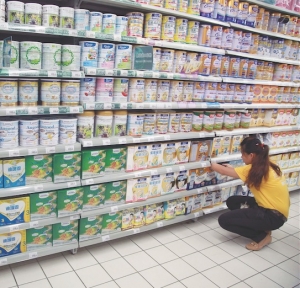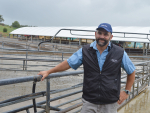The world’s fifth-largest dairy processor’s six-month revenues jumped 3.5% to $9 billion. However, profit fell 36% to $162 million; the co-op is blaming negative currency and pressure on margins for commodities.
Organic revenue growth reached 5%; higher sales prices contributed towards the growth.
The most robust growth was in China, Hong Kong and the Phillippines; sales volumes of infant nutrition increased. However, dairy-based beverages, cheese and ingredients sales decreased due to unfavourable market conditions in Europe, Indonesia and Vietnam. Exports of cheese to Russia also fell.
FrieslandCampina chief executive Cees ’t Hart says the combination of a strong euro, high milk price, falling sales in some Asian markets and political unrest all affected FrieslandCampina’s results during the first six months of 2014.
“Despite these developments, higher sales prices led to a further growth in revenue. In the consumer market, infant nutrition, one of our strategic growth categories, performed especially strongly.”
The co-op says sales prices of commodities such as foil cheese, butter and milk powder were too low to offset the high guaranteed price for the member dairy farmers.
On top of that, difficult market conditions in Asia and Europe plus negative currency moves amounting to $92m put volumes and margins under pressure. Operating costs in the first half of 2014 rose by 5.5% to $8.6 billion due to higher raw materials and packaging materials costs.
Cees ’t Hart says the worldwide offering of milk is expected to increase still further in 2014. How the demand will develop is uncertain, he says.
“In a number of European countries the markets will remain under pressure. As a consequence of the Russian boycott of dairy products, alternative products and markets must be found to offset the volume of milk exported to Russia, primarily in the form of cheese. FrieslandCampina cannot make any concrete statement regarding the expected result for the whole of 2014.”
















